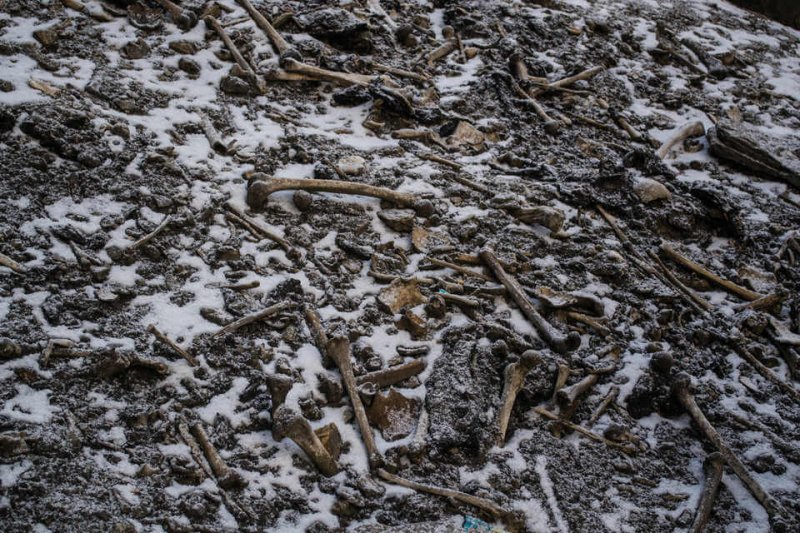At the mysterious Skeleton Lake in northern India, the dead are talking, revealing surprises through centuries-old DNA. And it’s not what anyone expected.
New research suggests the site is not the scene of a single natural disaster that killed hundreds, as once thought. Skeleton Lake’s emerging truth is far more mysterious. The human bones littering its shores appear to belong to people from across Eurasia, who met their end in multiple incidents spanning a thousand years.
…
The majority of the individuals, 23 of them, have genetic signatures consistent with South Asians, but the authors note no single regional signature dominates.
…
Fourteen other individuals, however, are of Eastern Mediterranean ancestry. Specifically, they appear to be most likely of Greek ancestry. The final individual, a male, appears to be of East Asian ancestry. All 15 of these people, men and women, died at the lake around the year 1800.
…
It’s pure speculation, but since Skeleton Lake was well known to pilgrims for centuries, perhaps one of them, traveling the wider world, told other adventurers about the site. Curious, they might have set off to see it for themselves — only to end up adding their bones to the grim collection.
Read full, original post: Skeleton Lake: Genetic Surprise Deepens Riddle Of The Dead































